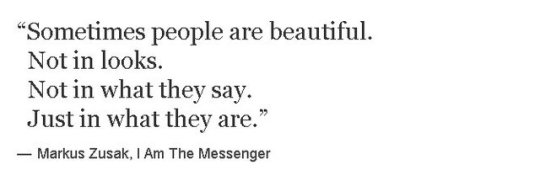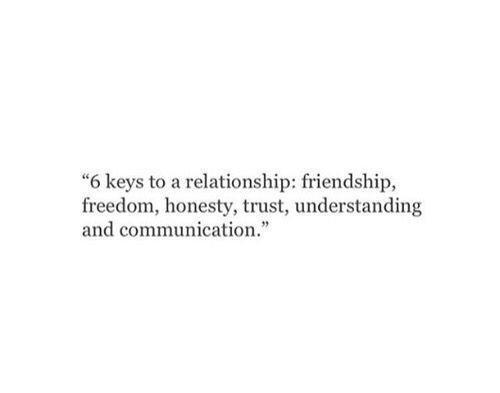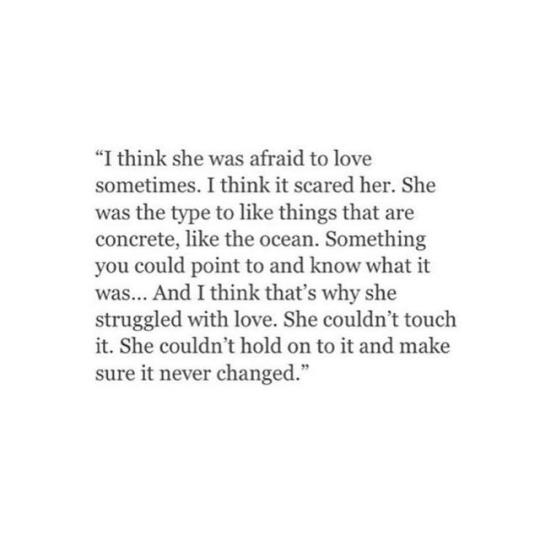Quote
We are afraid to care too much, for fear that the other person does not care at all.
Eleanor Roosevelt
(via help-n-quotes)
17K notes
·
View notes
Text
OVERUSING ADVERBS: A RANT.
School is hard. I’ve been editing a lot lately. I have developed a case of OPINIONS.
LOOK, when adverbs are used well, they’re great. They convey emotion and they help place us in the physical moment. In fact, in the hands of a good (or even reasonably good) author, they’re half of the show. A lot of people advocate chopping out adverbs as much as possible, but I’m not sure that I agree. (I also skipped my university’s class on this topic because I had AP credits, so maybe you all have already gone over this and I’m the one struggling at the back of the pack here?) In any case, I’m not trying to claim that I have any kind of authority over what good writing looks like. Nevertheless, the way adverbs are used in a novel are a major make or break factor for me when it comes to deciding whether or not I care for a book. They’re also one of the first things that drive me nuts when I’m reading unpublished works.
As far as I’m concerned, there are two major problems in play: one involving repetition and the other redundancy.
Repetition:
Most adverbs end in ‘ly’, right? So having several of them clustered together can create a rhymey and hypnotic effect. EXAMPLE: “She leaned against the wall beseechingly. ‘Why?’ she asked curiously, secretly afraid that her question would prompt him to yell angrily again.”
It’s almost impossible to lose yourself when you’re hung up on the nursery song sentence that is supposed to be taking you there. It’s distracting.
Redundancy:
EXAMPLE: “She leaned against the wall beseechingly. ‘Why?’ she asked curiously, secretly afraid that her question would prompt him to yell angrily again.”
Like, I’m not trying to be a pedant here, but if you’re asking a question, the implication of curiosity is already implied. No ‘curiously’ needed–we know she’s curious, that’s why she’s asking the question. Also, a yelling person is typically an angry person. If the context of aggression is already present, there’s no need for that ‘angrily’ either.
If you eliminate those two words, the piece of writing looks like this:
“She leaned against the wall beseechingly. ‘Why?’ she asked, secretly afraid that her question would prompt him to yell again.”
There are still adverbs. The writing still conveys the same idea and tone. But it is also easier to read, isn’t it? Am I nuts? Do I need to get my nose out of my computer and go take a walk or something? I’ve been focusing for so long that I feel like I’m losing my grip a little. Any opinions? I know this is mostly a moodboard blog, so if discussions about grammar aren’t something you find fun, feel free to keep scrolling!
62 notes
·
View notes
Text
The Signs As Dates
Aries: Stargazing at a hilltop, surprising each other with kisses and falling asleep peacefully — waking up in each other’s arms.
Taurus: A road trip, which includes singing along to the radio all the way there and taking countless amounts of pictures once they get there: wanting to cherish every memory of the place.
Gemini: Going to a market and buying as much food as you can: feeding each other and sharing each other’s food. Maybe even taking a cooking class together, just to spend quality time together.
Cancer: Doing YouTube challenges: Try Not To Laugh, Never Have I Ever, Most Likely To, etc. Having playful arguments during the game of Never Have I Ever because they disagree with their s/o, but finally making it up to them with a nice, peaceful Netflix session.
Leo: A nice restaurant or just a romantic place, where they talk with their s/o about each other and having a laugh — probably leaving the place with food stains all over their fancy clothes.
Virgo: Arcade date, blowing as much money as you want to just on games. Not minding anyone who passes by, because they’re both having the time of their lives competing against each other.
Libra: Going to an escape room together and working together to get out of the room, celebrating their escape (or maybe even their failure) with kisses from their s/o and a meal.
Scorpio: Spending a day at an amusement park, going on as many rides as possible. The last ride being a ferris wheel and kissing their s/o at the very top.
Sagittarius: Having a regular day together, nothing special about it. Taking ugly selfies with their s/o and making memes out of them, just to make each other laugh.
Capricorn: At the beach, swimming in the sea jumping over waves, their s/o falling into a big wave and then picking them up, laughing and kissing them.
Aquarius: Any random trip to Ikea where they both make puns, buy the most unnecessary things and finish of the day buying countless things at the Café.
Pisces: Going to the beach or a field and talking, playing music, joking about until they watch the sun rise together.
321 notes
·
View notes
Text
“She wanted even more: to be reborn always, to sever everything that she had learned, that she had seen, and inaugurate herself in a new terrain where every tiny act had a meaning, where the air was breathed as if for the first time. She had the feeling that life ran thick and slow inside her, bubbling like a hot sheet of lava. Maybe she loved herself…”
– Clarice Lispector, from Near to the Wild Heart
288 notes
·
View notes
Photo

Love to read? Get the FREE Kindle Reading App
348 notes
·
View notes
Photo

Love to read? Get the FREE Kindle Reading App
529 notes
·
View notes
Quote
A thought is a hard thing to control.
Susanna Kaysen, Girl, Interrupted
(via the-book-diaries)
352 notes
·
View notes
Photo

Ghost Words Haunting The Dictionary
Join us as we walk through these linguistic anomalies
4 notes
·
View notes
Quote
I think I fall in love a little bit with anyone who shows me their soul. This world is so guarded and fearful. I appreciate rawness so much.
Emery Allen (via love-diaries)
2K notes
·
View notes
Quote
i feel weird
an emotion inside
like i will never
be good enough
i will never find
happiness
like an endless
loneliness
never loving myself
t.m. (via tmpoem)
5K notes
·
View notes
Text
Square
A person who was decidedly not far out or groovy was square. In the jazz parlance of the 1940s, the word transformed to mean someone uptight and traditional, and not “with it.” The beatniks of the ‘50s and the hippies of the ‘60s embraced the word with gusto, and it lived on into the counterculture of the early ‘70s. "Be there or be square" is now most likely something you only hear your grandparents say.
0 notes
Text
Fopdoodle
A fopdoodle is someone of little significance. So, if you're letting someone get on your nerves who really shouldn't have the power, remember that they're just a fopdoodle. Then, carry on.
0 notes
Text
Zooterkins
The website Matador Network says this is "a 17th-century variant of zounds,which was an expression of surprise or indignation." It's less of an insult and more of something to yell after someone has insulted you. And, of course, to really pour salt on the wound, you can follow up with some other great words from this list.
0 notes
Text
Mumbo jumbo
When somebody isn’t making a lot of sense, we lightheartedly say they’re talking mumbo jumbo. But it doesn’t mean “a whole lot of mumbling.” Mumbo jumbo probably comes from the name of a West African god, Maamajomboo. Apparently, the Maamajomboo god was used by men of the tribe to “frighten women into obedience.” Yikes.
0 notes
Text
Hysterical
We’re starting off with a word originally used against one of the most-disparaged groups in history: women.
For thousands of years, the concept of hysteria was used to shame and subordinate women. In the 1800s a French doctor used his “research” on hysteria as a way to bring audiences to his lab to watch scantily clad women writhe and moan in orgasmic fits.
0 notes

